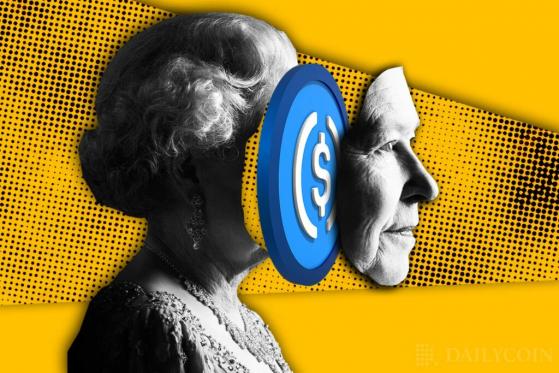Prince Charles presented the idea of a crypto bill during the ‘Queen’s Speech‘. Prince Charles addressed the public in the Queen’s stead, citing health reasons. During the Queen’s annual address to the British Parliament, 38 new bills were introduced. The bills covered matters of education, infrastructure, health, and security. One of the bills was related to cryptocurrencies, the regulation of which is in demand due to their increased usage and operations throughout the country.
Prince Charles pointed out that the new cryptocurrency bill would be aimed at “tackling illicit finance, reducing financial crime and helping local businesses grow”.
Economic Secretary @JohnGlenUK announced today that stablecoins will be brought into UK payments regulation.This places the UK financial services sector at the forefront of technology, creating conditions for stablecoin issuers and service providers to operate and invest. pic.twitter.com/14SsIGW5bfA Brave Decision in Controversial Times— HM Treasury (@hmtreasury) April 4, 2022
The decision to adopt stablecoins as legal tender comes just days after the dramatic crash of LUNA and UST, which led to utter turmoil in the crypto world and raised significant concern among specialists. However, the UK Treasury has a vision of “always being at the forefront of technology and innovation,” claims Chancellor of the Exchequer Rishi Sunak.
Nonetheless, the UK treasury does not plan to adopt algorithmic stablecoins such as UST as legal tender, preferring instead to operate using stablecoins that are fully backed with a 1:1 ratio, such as USD Coin (USDC) and Tether (USDT).
The proposed legislation aims to provide local businesses with new growth opportunities and financial stability, while also ensuring that the newest financial technologies are successfully integrated into the country’s everyday life. The topic of the recent stablecoin crash was also tackled as part of the discussion. A spokesperson for the UK Treasury distanced the new bill from algorithm-based cryptocurrencies, such as the notorious LUNA and UST, saying: “The government has been clear that certain stablecoins are not suitable for payment purposes as they share characteristics with unbacked crypto assets.”
NFTs Recognized as Valuable Property by UK Court
This regulatory move from the UK Government comes just weeks after a UK Court ruled that NFTs (non-fungible tokens) are recognized as private property. Lavinia D. Osbourne, CEO of Women in Blockchain Talks, accused hackers of stealing two ‘Boss Beauties’ NFTs—numbers 680 and 691. The High Court ruled that NFTs are personal property, and therefore protected by law. The Court hence requested that OpenSea disclose information relating to two account holders in possession of the stolen digital goods, after which an injunction to freeze the assets on OpenSea’s host network was swiftly initiated.
The ruling was made during court case held in the High Court of Justice in London (which is similar to the US Supreme Court). Indeed, the UK’s, and indeed the world’s Web 3.0 community has a lot to celebrate, as the landmark case marked the first time a High Court recognized NFTs as private property in an official capacity. Nevertheless, it is yet unclear how the ruling will affect Britain’s legal crypto framework.
‘The UK’s High Court has recognised NFTs (non-fungible tokens) as “property” in a case which is likely to have far-reaching implications for disputes involving...’ — @TheArtNewspaperContinue reading:https://t.co/OSwJ7AMbIm#nft #digitalart #nftartist #nftcollector #nftnews pic.twitter.com/ji2Ah1aVY3— carny.io (@carny_io) May 15, 2022
